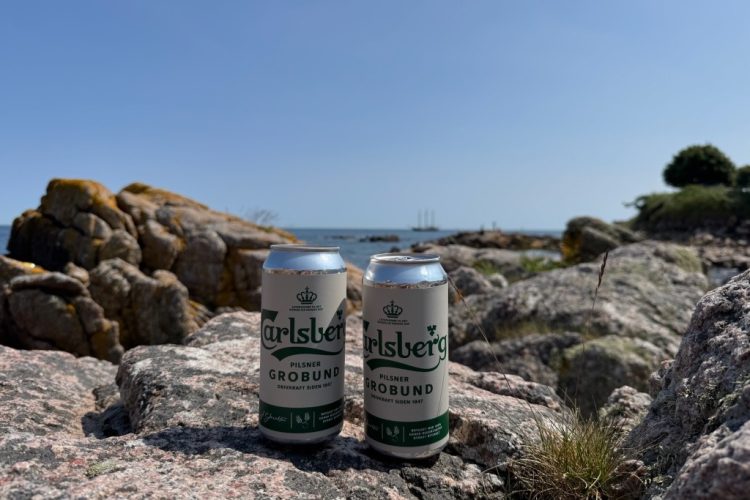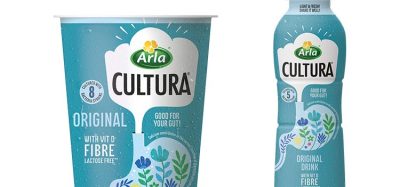Carlsberg unveils Denmark’s first beer brewed entirely from regenerative grown barley
Posted: 13 June 2025 | Ben Cornwell | No comments yet
Carlsberg launches Denmark’s first regenerative barley beer, Grobund, as it targets brewing exclusively with regenerative grain by 2040.


Credit: Carlsberg
Carlsberg has launched Grobund, Denmark’s first beer brewed entirely from regeneratively grown barley malt, marking a major step in its sustainability drive. The announcement coincides with the 2025 Danish political festival, Folkemødet (12-14 June), where the beer will debut, signalling the start of Carlsberg Denmark’s ambition to brew all its beer from regenerative grain by 2040.
Produced at Carlsberg’s Valby Bakke brewery, Grobund is a symbolic introduction to the company’s wider strategy to embed regenerative agriculture – a method focusing on soil health, biodiversity and minimal environmental impact – into its supply chain. The beer will be available on tap and in cans during the festival and also at the Home of Carlsberg in Copenhagen.
“Grobund will be the symbol of a much larger movement for Carlsberg. We are already testing the barley malt in the regular Carlsberg pilsner. The goal is that by 2040, we will brew exclusively with regenerative grain across the entire Carlsberg group,” said Peter Haahr Nielsen, Managing Director at Carlsberg Denmark.
Regenerative agriculture remains a loosely defined term worldwide, but Carlsberg has developed its own rigorous definition in partnership with international consultants and Danish advisory firm Agrovi. Their standards include crop rotation, plant cover and minimal tillage to improve soil health and biodiversity.
Agrovi CEO Niels Peter Ravnsborg said: “Fortunately, many people are starting to realize the positive effects of regenerative agriculture on biodiversity and climate. Carlsberg’s decision has clearly helped push the development forward, and we are proud to have advised on regenerative cultivation for over 20 years.”
He added that there are “fewer and fewer bad excuses” for not getting started, stating that regenerative farming is both better for farmers’ finances and requires fewer working hours in the field, while also significantly benefiting the climate and biodiversity.
Bigger regenerative ambitions
Carlsberg is moving rapidly from concept to scale. The brewery has already secured 500 tonnes of regenerative barley malt, enough for 3 million litres of beer expected to reach the market in 2025, blended into Carlsberg Pilsner. More notably, the company has just signed a new contract with maltsters Fuglsang and Viking Malt for 14,800 tonnes of regenerative malt harvested in autumn 2025, to be delivered by the end of that year.
This volume will allow Carlsberg Denmark to produce over 100 million litres of beer with regenerative malt in 2025 and 2026, around 40 percent of its annual barley malt consumption.
“The raw materials we use at Carlsberg Denmark account for approximately 40 percent of our emissions, and with this regenerative initiative, we can reduce those emissions while contributing to better soil health and increased biodiversity. Our new agreement clearly shows that we at Carlsberg see a future in brewing with regenerative grain and that we want to contribute to the development of regenerative agriculture. Not just in Denmark, but worldwide,” added Nielsen.
The launch of Grobund comes amid growing industry momentum for regenerative sourcing. Last week, Shake Shack announced it was introducing regeneratively grown flour into its UK burger buns as part of its Stand For Something Good mission.
Related topics
Beverages, Environment, New product development (NPD), Regenerative Agriculture, retail, Sustainability









